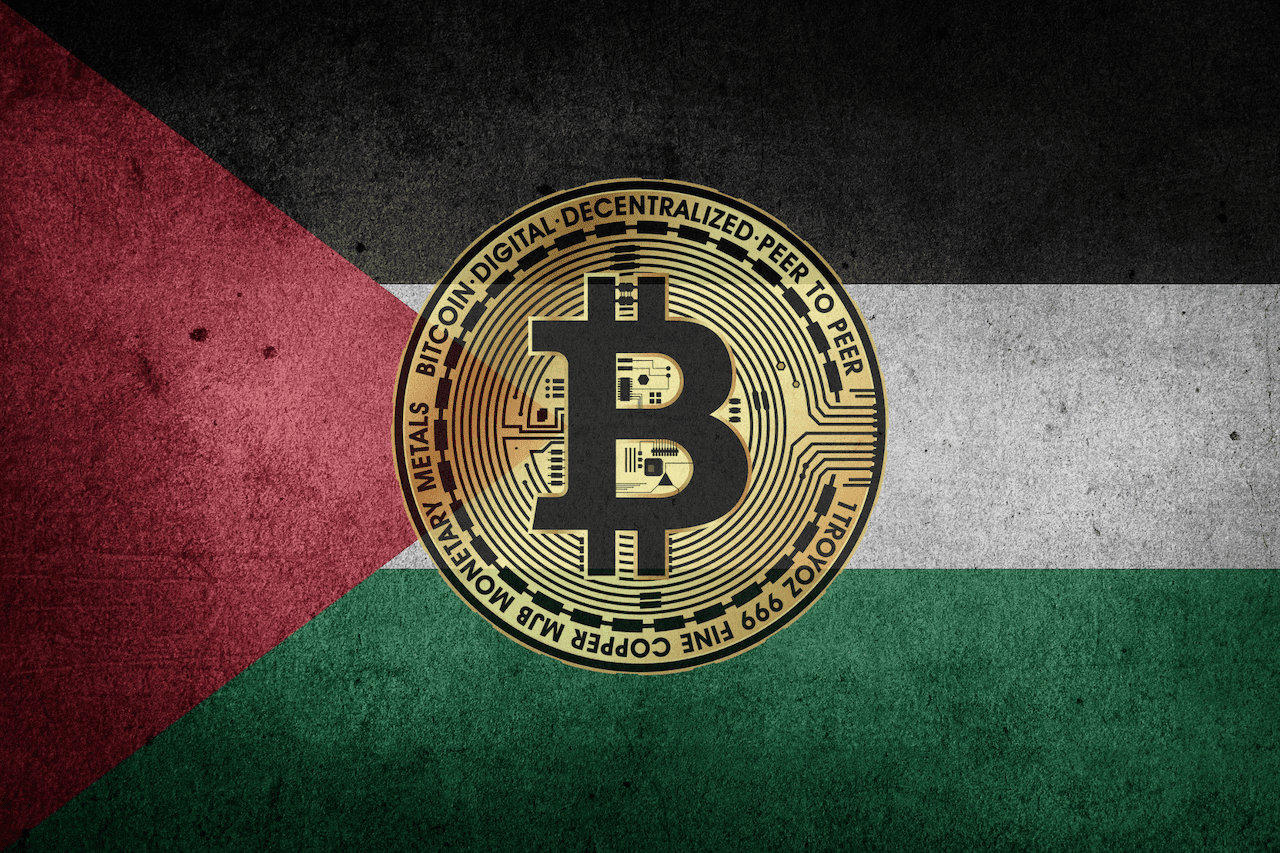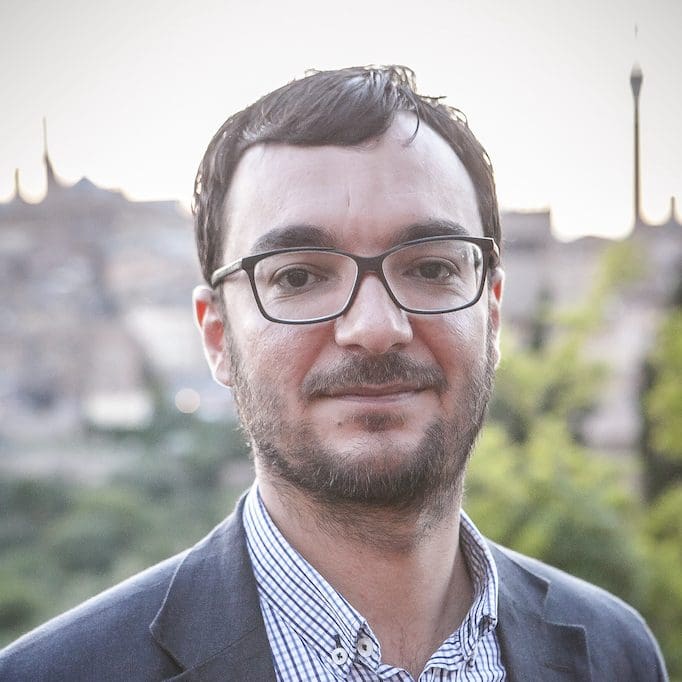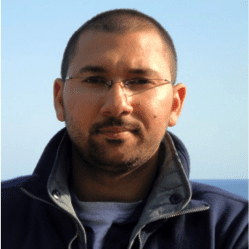
Overview
The global rise of digital and cryptocurrencies has the potential to dramatically reshape Palestinian political and economic resistance inside and outside colonized Palestine. How would this be possible, and how viable would it be? Which technological aspects of digital and cryptocurrencies can Palestinians deploy in their struggle for liberation? What are some of the complications they and their allies might face in utilizing these technologies, and how can they overcome them?
Al-Shabaka sat down with policy analysts Tariq Dana and Ibrahim Shikaki to debate the utility and viability of using digital and cryptocurrencies in the Palestinian context.1
Are digital and cryptocurrencies viable as alternatives to a Palestinian national currency?
Tariq Dana:
Cryptocurrencies were created as an alternative to highly centralized, state-controlled financial systems across the world. Decentralization is a keyword in understanding the utility of cryptocurrencies, because they are not controlled by any authority, including governments or central banks. Transactions are typically secured through algorithms and consensus among complex networks of computers across the globe. Cryptocurrencies also include other significant features, such as anonymity, security, privacy, and fast and unstoppable cross-border transactions. This means that cryptocurrencies are immune to fraud and political control.
I see many benefits to utilizing certain cryptocurrencies, particularly Bitcoin, if adopted institutionally as part of a Palestinian strategy. I use the term “strategy” to refer to the long-awaited revival of the Palestinian national movement, which necessarily requires developing new economic and financial means of resistance. This implies two things: first, we should not adopt an incompatible statist perspective to solve our problems. For example, it is not useful to think about national currency in a conventional sense, but rather, as an innovative financial approach to enhance anti-colonial struggle. Second, we need to rethink our traditional financial institutions and activities that are fully subjected to Israeli control. Through using decentralized cryptocurrencies, Palestinians can get around these barriers.
Palestinians can build stablecoins designed specifically for Palestinian use and cross-border payment, involving worldwide solidarity networks and pro-Palestine businesses Share on X
Financial and technological literacy are important for strategizing cryptocurrencies. Although cryptocurrency markets have some flaws, such as volatility, speculation, and scam, there are always ways to evade them. The idea here is not to involve the Palestinians in such market conditions. Rather, it is about how to use cryptocurrencies to challenge Israeli financial domination. For example, Palestinians can build stablecoins designed specifically for Palestinian use and cross-border payment, involving worldwide solidarity networks and pro-Palestine businesses. Stablecoins have fixed value, are built on blockchain technology, and are central to Decentralized Finance (DeFi), a revolutionary financial instrument that does not require the involvement of a central authority.
Data about cryptocurrencies use suggest similarities with the use of the internet in the 1990s, which was only at 1% of the world’s population. Just as the internet today is integral to people’s lives, it is expected that mass adoption of cryptocurrencies will occur in only a matter of time. The world’s ongoing economic and financial crises may accelerate this process, and Palestinians must be ready to join the global trend.
Ibrahim Shikaki:
Cryptocurrencies are not a viable national currency, not in Palestine nor anywhere else. First, we should differentiate between digital currencies and cryptocurrencies. Digital currencies, issued by governments and central banks, will certainly become part of the future. Since the beginning of 2022 alone, three key panels on the future of digital currency have been held at the US Federal Reserve, the European Central Bank, and the Bank of India.
Cryptocurrencies, as Tariq notes, have no central issuing or regulating authority. And while they include the word “currency” in the name, they do not play the same role as currency. First, there is still a deep concentration of cryptocurrency holders—and not only when comparing advanced to developing countries. For example, 0.01% of bitcoin holders control 27% of bitcoins in circulation. More importantly, more than 90% of cryptocurrencies are not used in transactions to purchase items. In other words, cryptocurrencies are better understood not as a currency but as a speculative asset—like a stock, only much more volatile.
In a country with relatively weak digital literacy, and lacking an effective regulating body for online scams, dealing with cryptocurrencies in Palestine today can be extremely risky Share on X
The problem of acceptability and volatility is exacerbated in Palestine, given that Palestinians import approximately $6.5 billion every year, or approximately 40% of the total GDP. This means that those who export to Palestine would need to accept cryptocurrencies as a form of payment. Furthermore, while cryptocurrencies are indeed secure, if handled correctly, investors have been scammed billions of dollars—more than $14 billion last year alone. In a country with relatively weak digital literacy, and lacking an effective regulating body for online scams, dealing with cryptocurrencies in Palestine today can be extremely risky.
Regardless of their viability, are there still technological aspects of cryptocurrencies that can be utilized in the Palestinian context?
Tariq Dana:
Cryptocurrencies are built on blockchain technology, which offers a range of utilities. Specifically, blockchain offers the possibility to connect Palestinians worldwide through Decentralized Autonomous Organizations (DAOs). DAOs are created to bring together people who agree to abide by certain rules to coordinate and self-govern for a common goal through an anonymous and secured voting system. DAO voting systems can democratize different fields, such as politics, education, economy, and other fields of public concern. Most importantly, DAOs have great potential to surpass the geographic fragmentation of Palestinians through using virtual networking for collective and participatory decision-making.
There are other applications that can be utilized to facilitate intra-business arrangements in the Palestinian market. For example, blockchains can offer Smart Contracts, which are self-executing agreements, to increase trust in economic transactions. Indeed, dishonored cheques in the West Bank and Gaza have been posing serious problems in recent years, amounting to billions of dollars in losses. This has far-reaching implications not only for intra-business relations, but also for social relations, and the Smart Contract technology could be utilized in certain situations to secure payment commitments.
Ultimately, though, envisioning blockchain-based solutions to some problems in Palestine must be realized through comprehensive strategies, and not technical policy solutions. That is, our objective should be to create radical change while avoiding the post-Oslo, donor-driven, policy reform approach that does little more than entrench the repressive status quo.
Ibrahim Shikaki:
On the one hand, because the value of cryptocurrencies is not anchored in any economic or financial foundation in a traditional sense, cryptocurrencies remain speculative and extremely volatile investments, and have recently been likened to Ponzi schemes or a “negative sum game.” On the other hand, the technology used by cryptocurrencies, known as blockchain, will certainly revolutionize online transaction recording, authentication, and cyber security. The technology that the pseudonym Satoshi Nakamoto “solved” in their white paper has countless potential applications for Palestine.
Using blockchain as a decentralized online payment system can be useful in Palestine, especially with the rise of new, steadier stablecoins, which are cryptocurrencies pegged to fiat money, such as the dollar, or stable commodities, like gold. Payments from abroad can bypass Israeli restrictions, similar to what the Afghans have been doing to sidestep US sanctions and the Taliban; Sure-Remit, popular in remittances across the African diaspora, is another example. Even payments within Palestine can utilize this approach, such as payments for families of political prisoners and others in need through the Ministry of Social Affairs, some of which have been targeted by Israel.
However, I believe another future application can be even more powerful in the Palestinian context, and that is toward voting. The use of blockchain for voting purposes is still in its infant stages, but with more research and work, it will likely become the future of voting in the next 10 to 20 years. That is because blockchain provides exactly what one needs in elections: anonymous yet auditable results. In Palestine, this can potentially address issues that arose in the last planned elections, such as enabling Palestinians in Jerusalem to vote. This application can also be relevant in broader efforts to include Palestinian voices from all around the world in political decision-making, similar to the efforts toward a global Palestinian National Council (PNC) election that gained traction in 2011.
Would Israel allow for this kind of technological development? How can Palestinians overcome Israel’s restrictions on their use of different technologies?
Tariq Dana:
There is no doubt that Israel will prevent any move to develop Palestinian technologies. Palestine’s technological infrastructure is controlled by Israel, which imposes various restrictions on the Palestinian digital economy. For example, Israel only gave Palestinians access to third generation (3G) mobile internet in 2018, and the internet speed in the West Bank and Gaza is among the slowest in the world. Despite these harsh digital conditions, the internet is becoming increasingly vital to Palestinian lives. More than 80% of Palestinian households had internet access in 2019, compared to 52% in 2017. This is an important sign of increased connectivity among Palestinians inside and outside of Palestine.
Envisioning blockchain-based solutions to some problems in Palestine must be realized through comprehensive strategies, and not technical policy solutions. Share on X
There are always ways to get around Israeli restrictions. Blockchain technology is borderless, offers de-territorialized spaces for constant innovation, and produces new opportunities to generate and regenerate alternatives. For this to be successful, the quest for technological resistance should turn into a visionary strategy that prioritizes cross-border engagement. In short, blockchain technology should be designed and developed beyond the geographical boundaries of Palestine, but with the involvement of Palestinians in Palestine and across the diaspora.
That is, Palestine should not be the center of technological investment, as it would risk direct control by Israel. Instead, Palestinians and pro-Palestine developers abroad should play a key role in setting the technological infrastructure, building applications to serve the Palestinian cause, and virtually connecting Palestinians worldwide. And despite slow internet speeds and relatively poor technological infrastructure in the West Bank and Gaza, they would be sufficient for using such applications.
Ibrahim Shikaki:
Israel has historically taken preemptive measures to stop Palestinian access to cutting edge communication technologies. This was clear in 2018, when Israel prohibited towers and equipment for 3G technology in Gaza. While the chorus of international financial institutions hail the ICT sector as the savior of the Palestinian economy, they fail to adequately challenge Israel’s tight grip over every aspect of the sector.
To the extent that Israel can halt these developments from being used in Palestine, it will. In terms of limiting Palestinian use of technologies like blockchain or certain types of cryptocurrencies, Israel could issue military orders banning financial institutions, including banks and money exchangers, from using cryptocurrencies. It could also enforce a ban, which is not as straightforward. But even if there were strict control over the internet, one would still be able to access cryptocurrency wallets and complete transactions using innovative tools, like Blockstream’s satellite method. Blockstream produces and sells inexpensive tools that allow individuals to access the necessary software without the use of the internet.
Israel has already begun its attempts to halt the use of cryptocurrencies. In 2021, it claimed that through an “operational breakthrough,” it was able to identify and seize cryptocurrency wallets owned by Palestinian political parties. In late February 2022, Israel claimed it seized another 30 cryptocurrency wallets. Whether these seizures were possible through an actual breakthrough or a more traditional approach, there is no doubt that Israel has one of the most advanced espionage and surveillance sectors in the world, which was recently made clear with the NSO Group hacking software scandal.
The advent of digital currencies means that Palestinians will need to be even more creative, and focus on cyber education and training. Share on X
However, Israel’s policies have never stopped Palestinian efforts at mobilization and development, whether that be in political or economic resistance. The advent of digital currencies means that Palestinians will need to be even more creative, and focus on cyber education and training.
How can Palestinians apply cutting-edge technology and communications to serve the growing global Palestine solidarity movement and Palestinian economic resistance?
Tariq Dana:
Technology has become indispensable in social justice struggles. Indeed, the Israeli regime continues to deploy technology as a cornerstone of its settler-colonial agenda, and Palestinians have begun using it as a prominent method of resistance. In fact, Palestinians and their allies have expanded use of the internet as an avenue of resistance and mobilization globally, exposing Israeli crimes to the world and Palestinians’ methods of resistance. This form of online activism has altered global public opinion in favor of the Palestinian struggle for freedom and justice.
Research also indicates that young Palestinian women have successfully used technological tools of e-resistance to confront Israeli geographic fragmentation and repressive military occupation in Jerusalem. Moreover, pro-Palestine movements wage cyberattacks against Israeli propaganda targets.
However, these efforts are carried out by individuals and small and scattered groups. Indeed, Palestinian leadership is largely absent from the technological sites of struggle due to its inability to adapt to change. Therefore, the only way to effectively integrate technology into the Palestinian struggle is with a strategic vision by a revived national movement. What we need is organized networking and systematic mobilization of human and financial capital to make sense of technology within the context of the Palestinian struggle.
There is no direct and clear answer for how the Palestinians can apply technology in service of their liberation and in their resistance. However, the first step in strategizing technology must be through embarking on serious and comprehensive research. Building solid knowledge constitutes the foundation for generating and applying technological tools and strengthening the technological capacity of the movement.
Ibrahim Shikaki:
Palestinians, both within colonized Palestine and in exile, have great potential as users of virtual spaces and platforms for collective political activism and coordination. The vast majority of Palestinians (96%) are literate, and secondary school dropout rates are relatively low (around 2%). The lack of educational funding and infrastructure means those positive indicators have not translated into digital literacy, but that both the institutions and the foundation of such knowledge do exist. Moreover, as compared to other developing countries, and despite Israeli policies to limit access, Palestinians in the West Bank and Gaza have an “internet reach” of about 70%, and up to 75% of households have at least one mobile phone, with smartphones being the majority.
The Palestinian ICT sector is still controlled by Israel, including many businesses that reflect the usual power dynamics: Israeli capital and cheap Palestinian labor. This dynamic recycles the value added in the Israeli market and does not lead to positive linkages within the Palestinian economy. Still, there is huge potential in the form of two pillars. First, there is tremendous potential for the political cooperation of Palestinians worldwide. There have already been several attempts at this, including the PNC elections campaign, the work of the BDS movement, the USPCN network, and the recent Build Palestine summit.
Not unrelated, the second pillar is the collective economic cooperation of Palestinian capital from the West Bank and Gaza, inside 1948 territories, and across the diaspora to advance the sectors that might not be as susceptible to Israeli physical control, including the various ICT subsectors. This is not meant to divert resources from important labor-intensive sectors like agriculture and manufacturing, but as a complement to them. Indeed, this kind of cooperation would necessitate the creation of a collective “Arab economy” with significant capacity for economic resistance.
Regardless of the future of cryptocurrencies as investment vehicles, the technology of blockchain will undoubtedly change the world in years to come. Palestinians should think about useful ways to harness the potential of this technology, especially in the face of Israel’s extreme restrictions on Palestinian movement and finances. This requires cooperation from all stakeholders, not just the private sector. The PA should proactively seek potential areas of practice and consult with local experts on future strategies.
- To read this piece in French, please click here. Al-Shabaka is grateful for the efforts by human rights advocates to translate its pieces, but is not responsible for any change in meaning.
Tariq Dana is Assistant Professor of Conflict and Humanitarian Studies at the Doha Institute for Graduate Studies, and an adjunct lecturer at Northwestern University in Qatar. He served as the director of the Center for Development Studies at Birzeit University and as a senior research fellow at the Ibrahim Abu-Lughod Institute of International Studies, the Graduate Institute of International and Development Studies in Geneva, and the School of Oriental and African Studies.
Al-Shabaka policy analyst, Ibrahim Shikaki, is assistant professor of economics at Trinity College, Hartford, CT. He earned his PhD from the New School for Social Research (NSSR) in New York, and held teaching positions at NSSR, The International University College of Turin, Birzeit, and Al-Quds universities. He also held research positions at the Palestine Economic Policy Research Institute (MAS) in Ramallah and Diakonia’s IHL Research Center in East Jerusalem. His recent writings include an upcoming chapter on the political economy of dependency and class formation in Palestine, and a brief on the economic aspects of Kushner’s Bahrain Plan.













